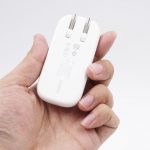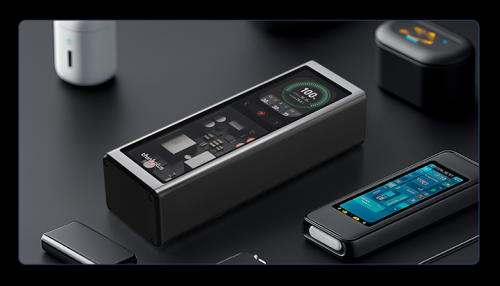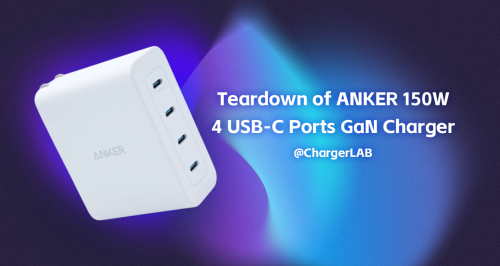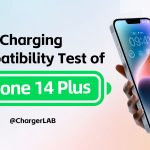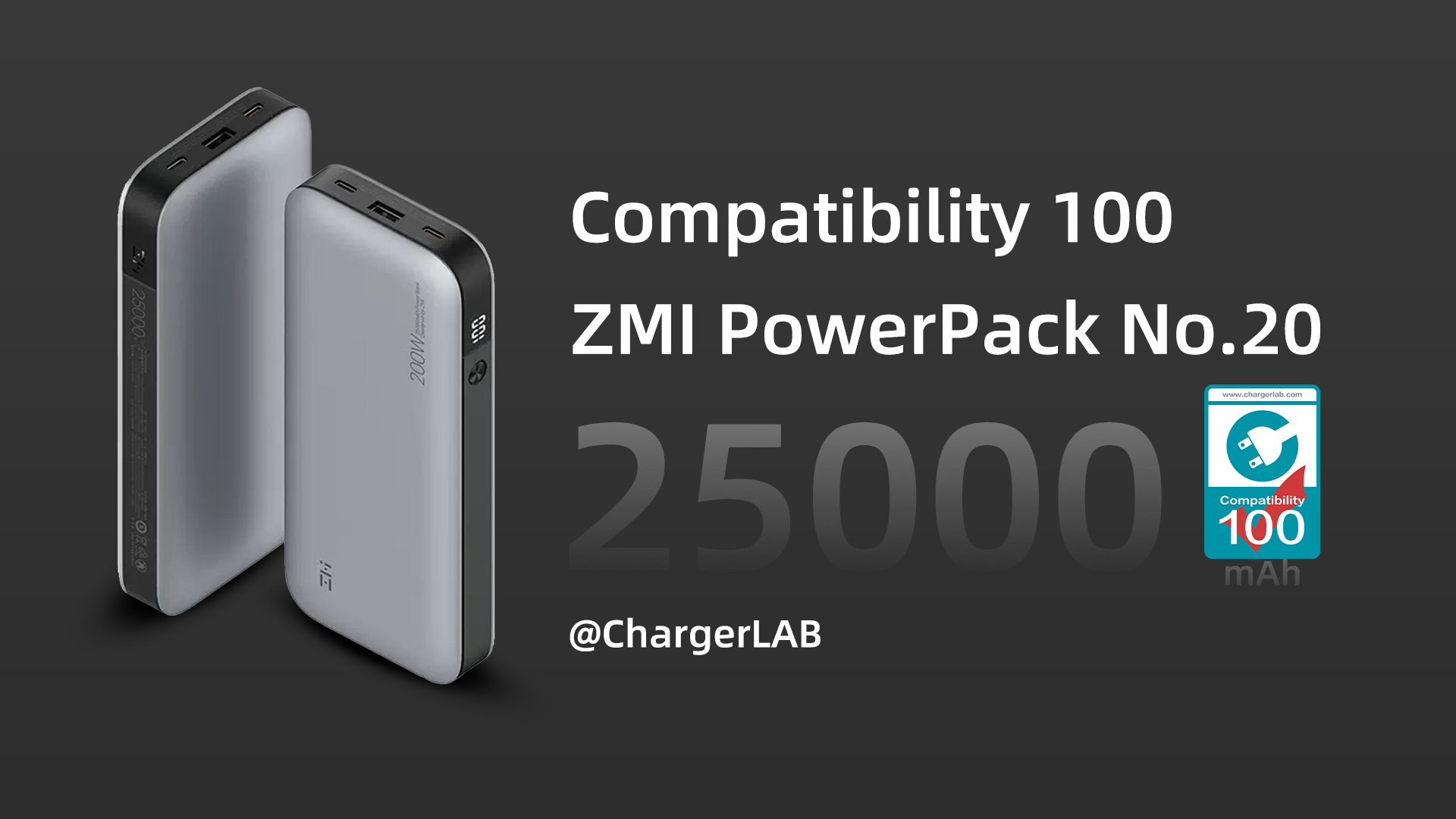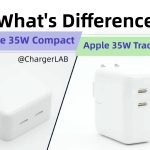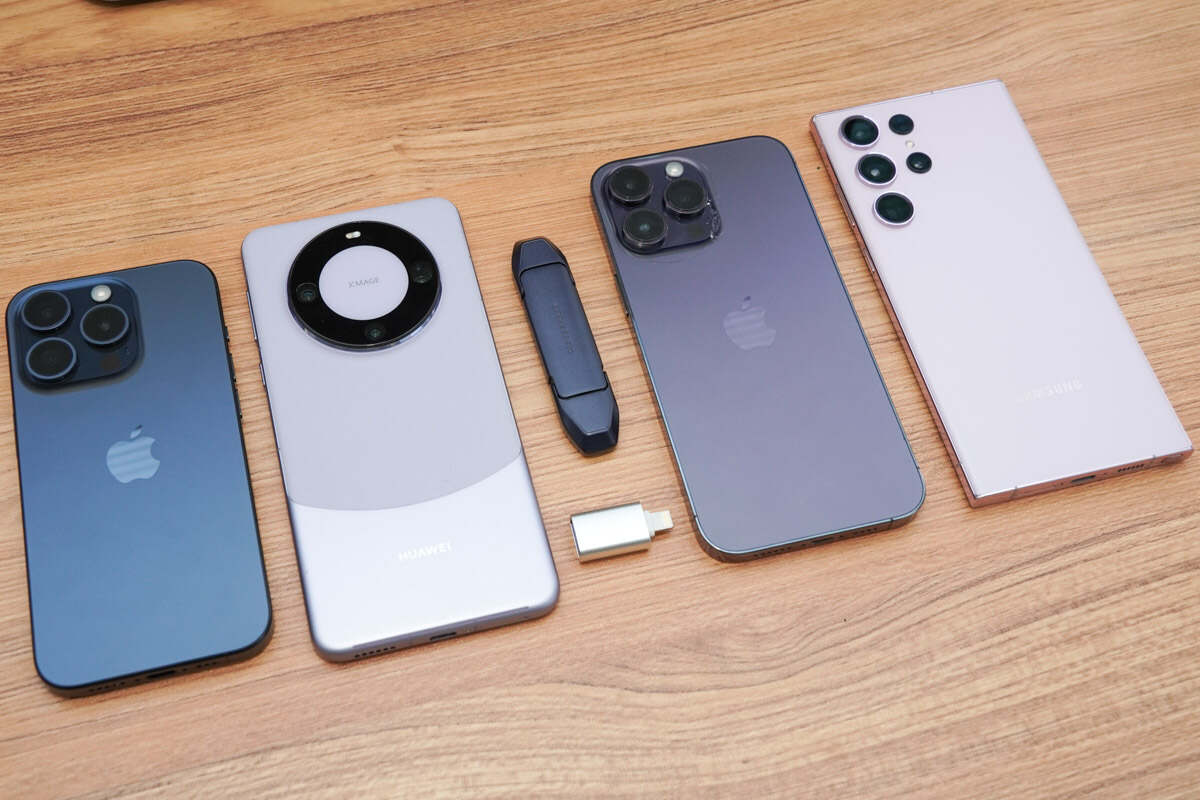On March 31, 2021, Realme hold a new product launch conference in Beijing. At the press conference, the new Realme GT Neo mobile phone and world’s first Dimensity 1200 processor have been launched. In addition to the new phone, Realme also launched a Realme Mini Flash Charger. This charger is made of the GaN material, no electrolytic capacitor and flat transformer design, and supports a new pulse charging technology.

It’s the one held in one hand in the picture, but its performance is inversely proportional to its size. Let’s take a look at the performance of this 50W mini flash charger from Realme.
1. Unpacking the product
(1) Unpack the product packaging

Realme’s product packaging has always used yellow as the primary color. The big “50W” on the front shows the performance of this charger. The specific name is Realme 50W mini flash charging kit. The box contains a flash charging adapter and a USB-C cable.

The specification information of this product is printed in the back.
Name: Realme 50W mini flash charging kit
Model: RMP2006
Input: 100-240V 50/60Hz 0.8A
Output: 5V6A, 10V5A (50W MAX)
PD(100-130V):5V1.5A、9V1A
PD(180-240V):5V3A、9V3A
PPS(180-240V):3.3-11V 3A
Manufacturer: RealMe Mobile Communications Co., Ltd.
Color: White
Interface type: USB-C

The design of the entire packaging box is relatively flat. Once you open the packaging box directly, and the Realme 50W mini flash charger is in it, wrapped in a thick inner liner.

The products in the box are also very simple and clear, Realme 50W mini flash charger, dual USB-C cable and instruction manual.
(2) With Wire

The cable included in the box is noodle shape, and the yellow cable perfectly matches the Realme product style.

The end of cable is printed with the Realme brand logo and the lightning logo, which means it supports fast charging.

The end of cable adopts lengthened design to extends the life of the cable.

The end-to-end length of the cable is about 102cm, which is the typical length.

Use POWER-Z KM001C to read the cable information; we can find it supports 20V 5A 100W charging power, USB 2.0 only.
(3) Realme 50W mini flash charger

This is the product we are going to talk about today, the Realme 50W mini flash charger. Just as printed on the box, the appearance of the charger adopts a bright white design, and the overall look is very rounded.

On the front of the charger, the SuperDART logo also shows that the charger supports SuperDART flash charging.

The charger uses a single USB-C design, which is located on the side of the flat body.

The pin can be folded, which is convenient for storage when not in use. It will not scratch other devices when you go out and put it in the bag, and it will not affect the integration of the charger.

When the pins are in use, they are just at right angles to the charger’s body.

In addition to the Realme brand logo, the back of the charger also prints the product specification.

This is the size when you hold a real charger in hand; the flat design makes it feel very light to hold in hand.
(4) Size and weight

The length of the charger measured with a vernier scale is about 81.37mm.

The width is about 39.05mm.

Excluding the pins, the thickness is only 10.49mm.
So, the measurements of the charger are 81.37x39.05x10.49mm, the calculated volume is about 33.33cm³, the maximum output is 50W, and the power density is about 1.50W/cm³. The power density successfully broke one and exceeded 50%.

The thickness of the charger is even thinner than half height of a standing one-dollar coin.

Put it together with the 65W flash charger that also supports SuperDART.

Look at it from another angle.

The interfaces of the two chargers are also different. The 65W SuperDART flash charger has a USB-A output port, and the Realme 50W mini flash charger has a USB-C port.

From left to right are Apple 20W PD charger, Apple 30W PD charger, Realme 50W mini flash charger and Apple 61W PD charger.

The weight of the charger is only 55.3g.

Used with power strip, if you are using a single-row power strip, it will not interfere with the sockets on the left and right sides, but there is a lot of space around.

But if you use a double-row power strip, there will be no problem with the left and right sockets, but the sockets on the opposite side of the charger may be obstructed.

For example, There may be situations where the pins cannot be inserted, but it depends on your own power strip.

Plug it in the wall outlet, the charger fits tightly on it, and there is no need to worry about whether the pins will be exposed. The outlet can firmly bite the 50W high-power charger pins.
2. Protocol detection
(1) Fast charging protocol

Use POWER-Z KT002 to read the fast charging protocol of the charger; we found it supports VOOC, DASH, WARP, SuperVOOC, PD and other fast charging protocols. The fast charging protocol supported by the charger will be further verified in the compatibility test.
(2) PDO

And then, we read the PDO message of the charger. It supports two fixed voltage gears of 5V3A and 9V3A and a set of PPS gears of 3.3-11V 3A.
(3) Charging compatibility test

OnePlus 8T supports DASH/WARP/QC/PD fast charging protocol, using the charger to charge OnePlus 8T, the power is 8.77V 4.87A 42.79W.

Use the charger to charge OnePlus 8 Pro. The power is 4.39V 4.89A 21.50W.

Use the charger to charge the Realme X7, and the power is 7.73V 2.88A 22.29W.

Use the charger to charge OPPO Reno 2, and the power is 4.04V 2.91A 11.78W.

Use the charger to charge OPPO Reno4, the power is 8.32V 4.85A 40.38W, and the SuperVOOC flash charge is successfully triggered.

Use the charger to charge OPPO Reno Ace, the power is 8.53V 4.63A 39.55W, and the SuperVOOC flash charge is successfully triggered.

Use the charger to charge OPPO Reno3 Pro. The power is 4.54V 4.87A 22.14W and supports VOOC flash charging.

Use the charger to charge OPPO ACE2, and the power is 8.22V 4.87A 40.08W. It can also trigger SuperVOOC flash charge.

The above test uses the original cable. It can also trigger the SuperVOOC flash charging by replacing it with other 100W dual USB-C cables, which is more compatible with the cable.

Use the charger to charge the MacBook Pro. The power is 8.83V 2.90A 25.64W, and supports PD fast charging.

Of course, the charger can also charge Bluetooth headphones, charging both laptops and TWS headphones.

Use Realme 50W mini flash charger to charge iPad Air 4. It can quickly trigger fast charging after connecting to the charger. From 0 min- 50mins, the power was about 26W; From 56 minutes to 1 hour and 11 minutes, the power was about 17W; From 1 hour and 14 minutes to 1 hour and 36 minutes, the power was about 15W.
Then the power and current gradually decrease until the charging ends, and the whole process takes about 2 hours and 12 minutes. During the whole charging process, the input voltage is 9V, and the maximum power is 8.84V 2.91A 25.75W.
4. Other performance tests
(1) Fully loaded in 1 hour

Use the PD fast charge gear of 9V3A 27W to test it. The test time is one hour. During the test, the voltage value fluctuates slightly, but is relatively stable overall.
(2) Standby power consumption
After the test, the Realme 50W mini flash charger’s unloaded power consumption is 0.103W at 220V 50Hz, about 0.9KW/h in one year. Unloaded power consumption at 110V 60Hz is 0.058W, about 0.50KW/h in one year.
(3) Conversion efficiency
Under 220V 50Hz, use the Realme 50W mini flash charger with full output power in each voltage range for testing, get the power of the AC terminal input and the USB terminal output. The conversion efficiency of the charger ranges from 88.83% to 90.35%.
Under 110V 60Hz, the charger’s conversion efficiency ranges from 88.31% to 88.78%.
(4) Ripple test
We test the ripples of the Realme 50W mini flash charger at 220V 50Hz and 110V 60hz. The measured results are as follows:
When unloaded: the peak-to-peak ripple value varies from 94.4mVp-p to 138.0mVp-p under 9V0A and 5V0A output, at 220V 50Hz.
When heavily loaded: the peak-to-peak ripple value varies from 137mVp-p to 203mVp-p under 5V2A, 5V3A, 9V2A and 9V3A output, at 220V 50Hz.
When unloaded: the peak-to-peak ripple value varies from 104.0mVp-p to 156.0mVp-p under 9V0A and 5V0A output, at 110V 60Hz.
When heavily loaded: the peak-to-peak ripple value varies from 184mVp-p to 203mVp-p under 5V1.5A and 9V1.25A output, at 110V 60Hz.
(5) Temperature rise test
Firstly, let us know something about this test. Maybe you have heard, Charger heat is related to power density, efficiency value, internal design, environment temperature, etc. Products with low power density are large and have enough space to spread the heat, and the surface temperature will be lower, but the size is very large. For products with high power density, it’s too small to spread the heat. Technically, the temperature will be hotter than products with lower power density.
In addition, single-port chargers and multi-port chargers will be different due to different circuit designs. Single-port chargers are AC to DC direct output, but multi-port chargers are AC to DC to DC, the temperature will higher than single-port.
For example, after one-hour fully loaded test, the temperature of low-power density GaN chargers is generally between 60-70 celsius degrees, while the high-power density single-port GaN chargers are generally around 70 celsius degrees. The temperature of multi-port GaN chargers generally exceeds 70 celsius degrees.
The test condition we created is a 25°C incubator. We put the charger into that box and start the continuous output (set the power at 9V 3A 27W) for one hour. After one hour, the highest temperature on the charger surface was 71.5°C.

5. Innovative design

Why is the appearance of this Realme charger can so thin, and it also supports 50W charging. From the PCB board, we can find that the charger does not use traditional cylindrical capacitors. But innovatively uses three high-voltage MLCC filters, that is the three objects in the upper right corner of the picture. That’s why the charger can be made so thin and light.
Summary of ChargerLAB
The Realme 50W mini flash charger has the same appearance as the biscuit charger that OPPO previously launched. It adopts the GaN material, and is designed without electrolytic capacitors.
The charger supports VOOC, DASH, WARP, SuperVOOC, PD, PPS, Apple2.4A and other fast charging protocols, supports 5V3A, 9V3A two fixed PD voltage gears, and also supports a set of PPS gears of 3.3-11V 3A. For OPPO, Realme, and OnePlus, VOOC or SuperVOOC flash charging can be triggered. For other devices, PD fast charging can be supported (up to 27W).
The OPPO series of flash chargers were all USB-A ports in the past. In the past two years, they have switched to USB-C ports. Then the chargers that support 65W SuperVOOC are also compatible with 45W PD fast charging. This time, Realme 50W mini flash charging can support 10V5A SuperDART flash charging and the 27W PD fast charging, makingthe product more compatible.
If you are interested in this 50W mini flash charger from Realme, you can check it out on the official website.

